MURFREESBORO, Tenn. — A trio of Middle Tennessee State University professors has been awarded a $1.2 million grant from the National Science Foundation to advance research in improving the teaching of the STEM fields of science, technology, engineering and math.
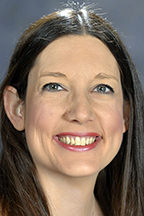
Principal investigators Sarah Bleiler-Baxter, mathematical sciences professor, Gregory Rushton, Tennessee STEM Education Center director and chemistry professor, and Grant Gardner, biology professor, are heading a research project titled “Advancing the Culture of Teaching in STEM through Diffusion of Strength-Based Reflexivity.”
“This was a 10-year initiative of practicing, piloting, making modifications … and finally got to the point where it’s a big project at the federal level,” Bleiler-Baxter said. “Sometimes as academics we become impatient, or we think that our work is not good enough because it’s not immediately being funded, or it’s not immediately being recognized.
“But this goes to show that you can start really small — from a single department or a single committee — and then build all the way up to one of these big projects.”
Launching Teaching TRIOS
MTSU professors are required to evaluate their peers. Bleiler-Baxter and her colleagues aim to develop a program for peer evaluation that will lead to growth in the teaching culture of STEM departments within the College of Basic and Applied Sciences. In particular, they aim to support STEM faculty in developing a greater sense of autonomy, competence, and relatedness in their teaching practice.
It started out as a project within the mathematics department, headed by Bleiler-Baxter when she was an assistant professor. She became the chair of the department’s Teaching Advancement Committee and, with the support of her department colleagues, helped launch the Teaching TRIOS program during academic year 2014-2015.
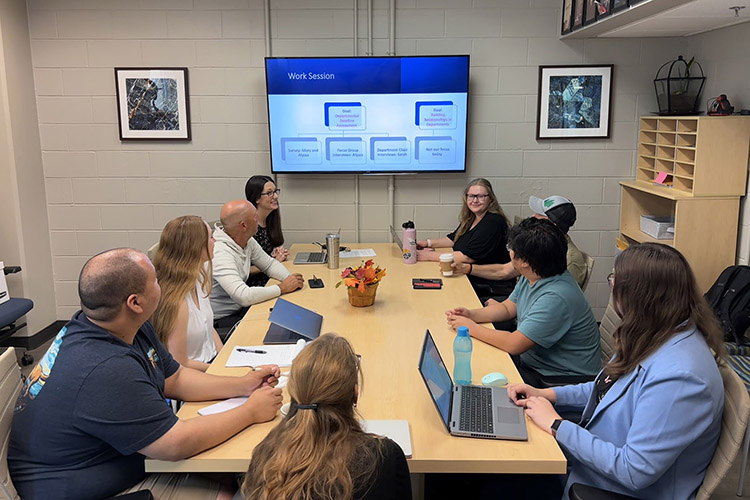
Teaching TRIOS is an acronym that stands for time-sensitive, reciprocal, inclusive, operable and strength-based. The “S” of trios launched shortly after piloting the program.
“What we want to do is go into one another’s classroom and really look for the strengths that the other person is bringing to their instruction and then debrief afterwards and try to learn from and unpack those strengths,” Bleiler-Baxter said.
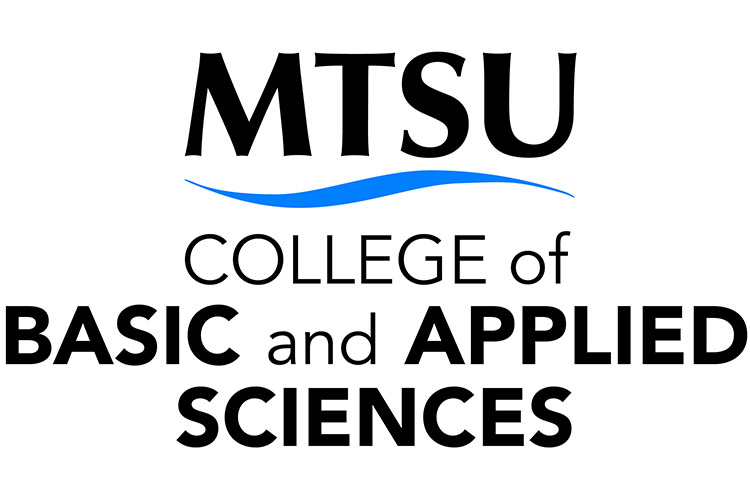
They chose the acronym because they wanted a program that respected faculty time, allowed for junior faculty to also observe senior faculty, included full-time lecturers, adjunct faculty and graduate teaching assistants to the program, and met the requirements of a peer observation while also opening up the department to increased growth.
While the initiative started small within the mathematics department, it has grown to incorporate many different STEM departments within the college.
For the most recent $1.2 million grant, six STEM departments in the college and 60 faculty within those departments will be directly involved over the course of five years, Bleiler-Baxter said.
Implementing the program
For the first year of the grant, Bleiler-Baxter, Rushton and Gardner will be focusing on two main goals.
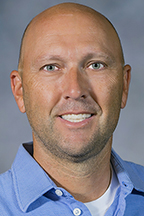

Their first goal is to build relationships with professors in STEM departments on MTSU’s campus, and the three lead faculty didn’t want to limit themselves to only the departments they’re familiar with, Bleiler-Baxter said.
“We want to get into those departments, meet the faculty, build relationships, talk with the chairs in those departments and really find out what it is that they have as goals for their local context or their department,” Bleiler-Baxter said.
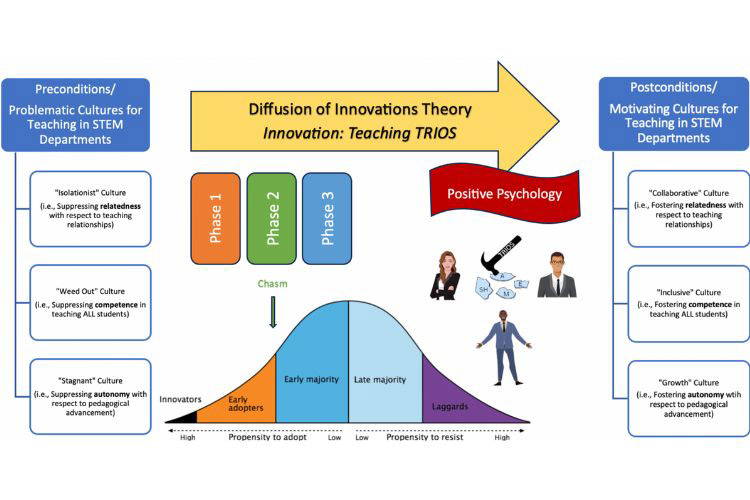
Their second goal is to better understand the teaching culture within STEM departments on campus by working with graduate students and postdoctoral scholars to collect baseline data.
Then, in fall of 2025, the three professors will begin implementing the Teaching TRIOS initiative within CBAS in six different departments.
“We would have 18 faculty involved, three faculty each from six of the departments, and so these folks are who we would call early adopters,” Bleiler-Baxter said. “They’re the ones who are typically really innovative in departments, would like to try new things, want to bring new ideas to their colleagues and are eager to promote cultural change.”
After selecting their chosen faculty members, Bleiler-Baxter, Rushton and Gardner are going to spend a year developing the professors’ leadership skills for the professors to then implement those skills into their departments and serve as agents of change within their departments.
They plan to scale up the process by working towards engaging up to half of the STEM teaching faculty within the college in TRIOS, Bleiler-Baxter said.
This program may start at MTSU, but the grant allows for the initiative to spread nationally and even internationally, through the dissemination of research-based models.
Faculty respective roles
Bleiler-Baxter has been working on Teaching TRIOS for 10 years alongside many different faculty within the college, including key idea-drivers in the Department of Mathematical Sciences such as James Hart, Jeremy Strayer, Ginger Rowell, Chris Stephens, Rachel Leander, and now retired, Donald Nelson.
She, Rushton and Gardner worked together on a previous project for the Teaching TRIOS initiative back in 2020-2021 with a $50,000 grant from the Tennessee Board of Regents Student Engagement, Retention and Success initiative.
For this current project, Bleiler-Baxter said her “expertise is more in general faculty development, Grant’s expertise is in departmental culture and graduate teaching assistant development and then Greg Rushton’s expertise is in leadership and leadership development.”
All three professors also teach in the mathematics and science education Ph.D. program.
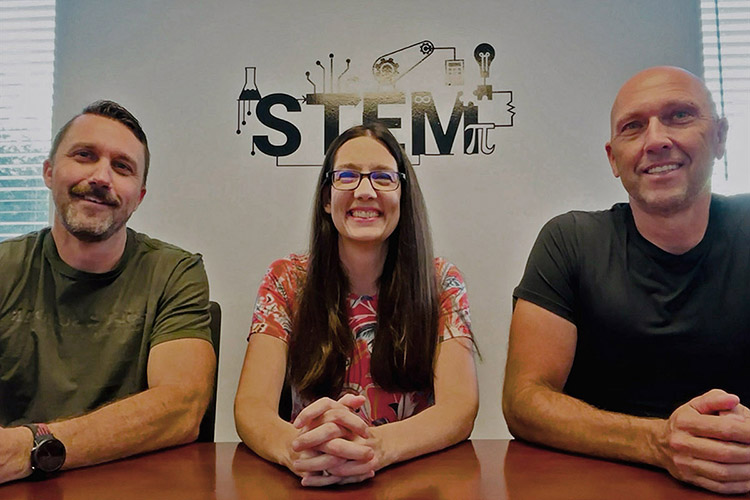
“Feeling a sense that you can grow as an instructor and that you have the tools and then also community available to you to support that growth is what we want to move toward,” Bleiler-Baxter said.
Other project team members include:
Aspen Malone, project coordinator, Tennessee STEM Education Center; Alyssa Freeman, graduate research assistant, mathematics and science education Ph.D. program; Cory Wang, graduate research assistant, mathematics and science education Ph.D. program; Cassandra Mohr, postdoctoral scholar, preparation and refinement of postdocs in STEM for discipline-based education research program; Mary Foley, postdoctoral scholar, preparation and refinement of postdocs in STEM for discipline-based education research program; and Andrew Puente, postdoctoral scholar, preparation and refinement of postdocs in STEM for discipline-based education research program.
— Maddy Williams (Maddy.Williams@mtsu.edu)

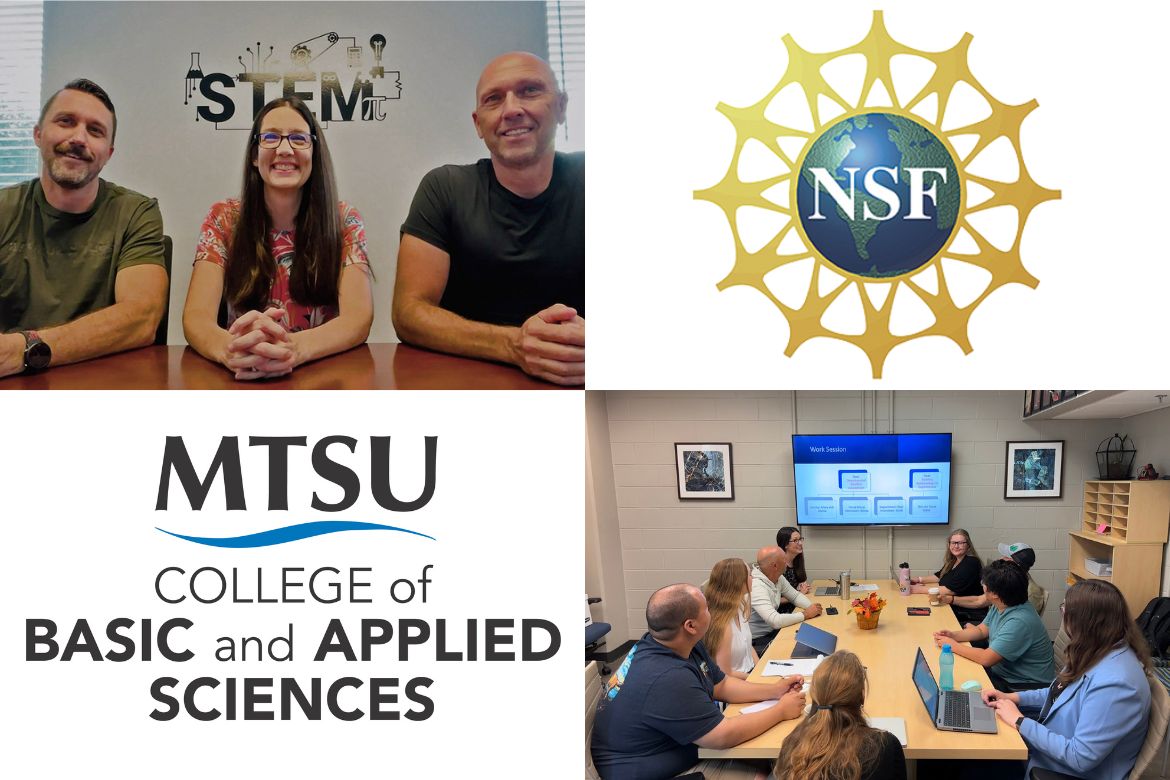
COMMENTS ARE OFF THIS POST